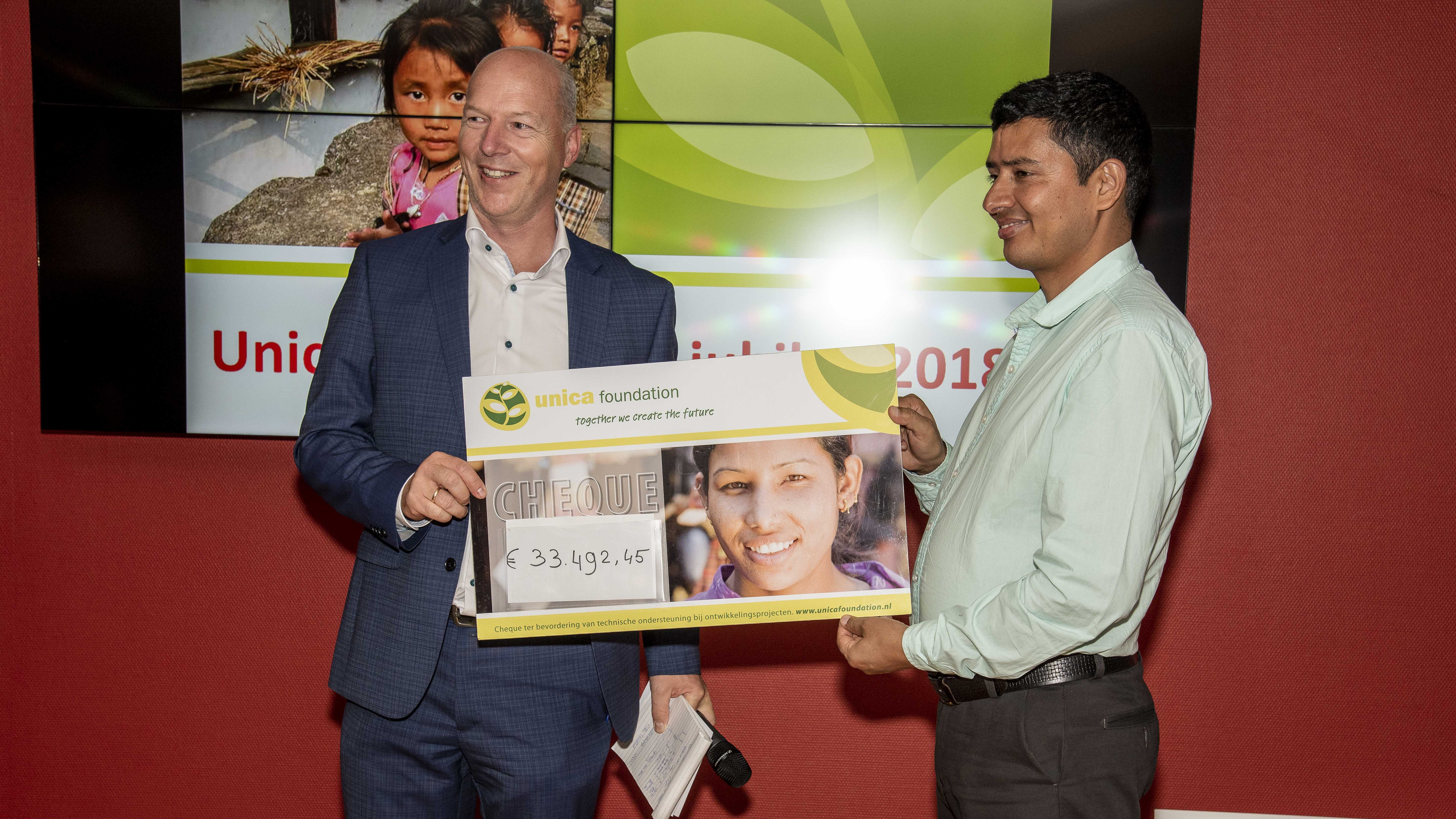Fundraising for projects of the Unica Foundation takes place through one-off and regular donations from individuals and companies. Employees of Unica have the option to donate a fixed amount with each salary payment. The Unica Foundation also offers various sponsor packages, with which companies with an annual contribution from € 1,500, – can become participants of the foundation. There are also opportunities for companies to adopt specific projects and support them under their own company name. Finally, a sponsor run takes place every year at De Wel business park, where Unica’s head office is located. Employees and partners raise money for of Unica Foundation through this sponsor run.
Project selection
For the selection of projects the Unica Foundation works together with local Nepalese organizations, such as the Red Cross, Shanti Griha, HEAD Nepal and ECCA. Together with the project leaders of the Unica Foundation, project proposals are examined and in many cases the locations are also visited. Based on this observation and findings, the management of the Unica Foundation is informed by the project managers.
Projects must meet a number of criteria:
- Stable organization, aimed at the realization and maintenance of the project;
- Personal contribution of the population in money or labor;
- If possible, also a contribution from the Nepalese government or aid agencies;
- Sustainable solution;
- In difficult-to-reach areas or aimed at a needy target group;
- Sufficient and accurate information about the progress of the project during realization.
When a project satisfies the above criteria sufficiently, the financing and planning is assessed. On this basis, it is decided in a board meeting to include a project directly in the planning or to put it on the agenda until sufficient funding has been found. A project description will be made for all projects, with which the Unica Foundation can inform all parties involved or recruit sponsors.
Evaluation
To ensure that the contributions to the Unica Foundation are spent in the best possible way, we’re continuously working to critically evaluate the results of our projects. We ask ourselves whether the results mess up with the expectations or whether the applied techniques can be improved, or whether the designs can be designed and what the users think of it themselves.
Evaluation takes place by visiting the realised projects periodically, including in the years after completion. Not just the technical functioning of installations is important, but also the impact on the residents is assessed. This way, we succeed at improving every project over the last.




